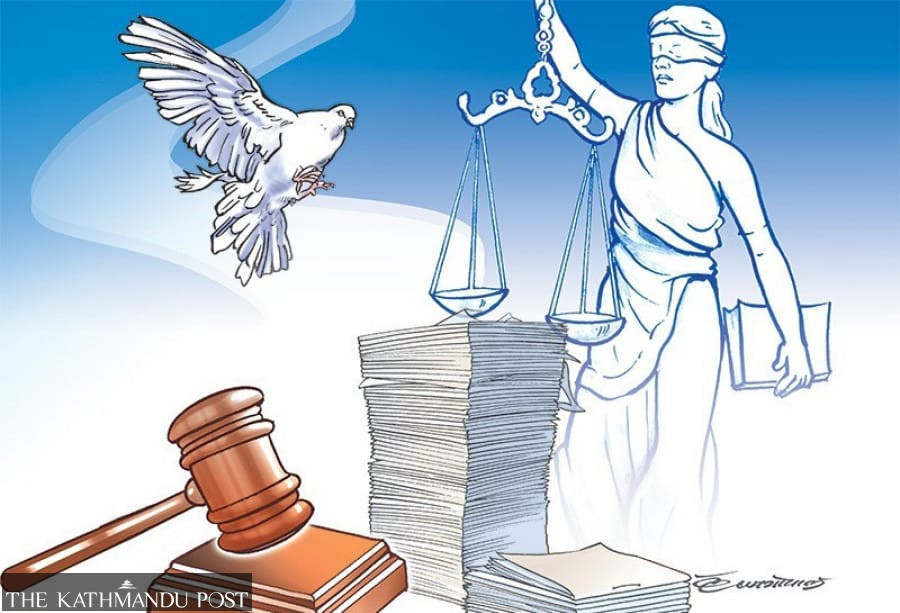National
Committee to select office bearers for transitional justice bodies remains idle
The panel was formed last month despite reservations from the conflict victims and human rights defenders who want legal amendments before appointing office bearers.
Post Report
Over a month since its formation, the committee to select candidates for chairpersons and members of the two transitional justice commissions has yet to start its work.
A Cabinet meeting on April 12 constituted a five-member committee led by Om Prakash Mishra, a former chief justice, to nominate the candidates for both the Truth and Reconciliation Commission and the Commission of Investigation on Enforced Disappeared Persons. Four of the members were picked by the government, while the National Human Rights Commission chairperson or any member he recommends is also on the panel.
The constitutional rights watchdog, however, has refused to send its member saying that it needs a time-bound commitment from the government to endorse a bill to amend the Enforced Disappearance Enquiry, Truth and Reconciliation Commission Act.
“We have not held a single meeting so far. I don’t think the committee will commence its work until the human rights commission sends its representative,” Arjun Karki, a committee member, told the Post.
The committee was constituted last month despite reservations from the conflict-era victims of human rights violation and the human rights defenders who demanded an amendment to the Act before selecting the office bearers. The government, however, said formation of the committee was necessary as per the Supreme Court’s March 12 order to the government to select office bearers for the two commissions within a month.
The court had asked the government to constitute task forces within the commissions to conduct preliminary investigations into the victims’ complaints until the office bearers were appointed.
Following the court’s order, the victims and the human rights defenders demanded the government and the parties endorse the bill to amend the Act by the top court’s deadline before starting the selection process. However, the amendment bill couldn’t be endorsed within the deadline, prompting the government to form a committee based on the existing law.
Following the committee’s formation, the victims and human rights defenders requested the government to halt the selection process until the Act is amended. They also urged the national rights watchdog to refrain from sending its representative.
“Amending the Act is a pre-requisite to deciding on the transitional justice process. It is good that the selection committee is dormant now,” Suman Adhikari, founding chairperson of the Conflict Victims Common Platform, told the Post. “I hope the National Human Rights Commission doesn’t deviate from its stand.”
There has been no discussion on the bill that is under consideration of the Law, Justice and Human Rights Committee of Parliament ever since a change in the ruling alliance on March 4. The Nepali Congress, which maintained that the bill must be endorsed through a vote when it was in government, has changed its stance after being pushed to the opposition side.
The two commissions have been inactive since July 2022 after the government decided to extend their terms without retaining their chairmen and members. The government had claimed the bill to amend the transitional justice law would be endorsed by October 2022 and the appointments be made based on the revised Act.
However, nearly two years later, nothing has been achieved as the parties are split on several provisions of the bill.
The truth commission has received 63,718 complaints while the commission on disappearances is sitting on around 2,400 cases.
“We have seen what types of people it selected the last time. I don’t understand why a tested and failed person has again been picked to make the recommendations,” said Adhikari.
Stakeholders have also demanded consultations before any decision on the transitional justice process is made. However, the Mishra-led panel was formed without informing victims and human rights defenders.




 14.24°C Kathmandu
14.24°C Kathmandu














